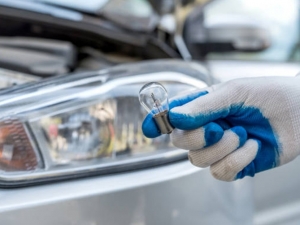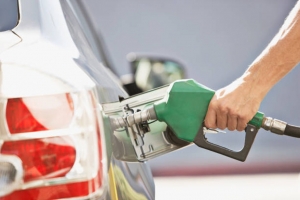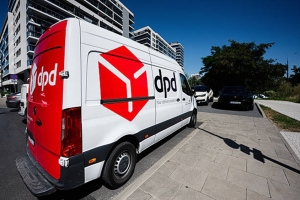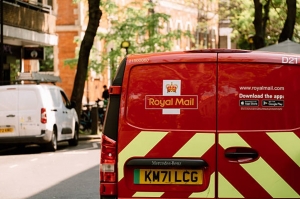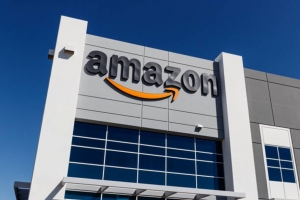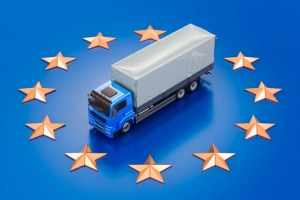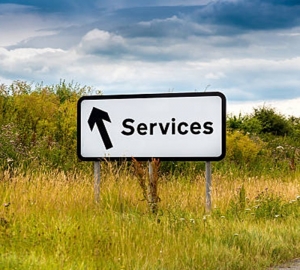Test Owner
Government to Review Impact of Dazzling Car Headlights on UK Roads
Concerns from motorists about increasingly bright vehicle headlights have prompted the government to re-examine car lighting regulations. Drivers say the glare from modern LED headlamps is making night-time journeys more difficult and, in some cases, unsafe. The Department for Transport (DfT) has confirmed that it will include new measures in its upcoming Road Safety Strategy to address the issue.
Many road users report that LED lights, which produce a sharper and whiter beam than older halogen bulbs, are causing temporary blindness when driving at night. Older drivers, whose eyes take longer to recover from glare, say the brightness can make them avoid night travel altogether. Surveys from the RAC show that three-quarters of motorists find night driving harder due to dazzling lights, while a third admit feeling anxious behind the wheel.
Experts suggest that poor headlight alignment, vehicle height, and illegal LED conversions are worsening the problem. The DfT has already instructed the Driver and Vehicle Standards Agency to crack down on non-compliant retrofitted bulbs and is commissioning new research into the role of vehicle design in causing glare.
Manufacturers argue that LED headlights improve visibility for drivers, but road safety advocates warn a balance must be struck to ensure they don’t blind others. The forthcoming review aims to modernise outdated regulations and make driving at night safer for everyone.
Work Begins on M5 Junction Upgrade Despite £70m Shortfall
Early work has started on the £363 million upgrade of junction 10 on the M5 near Cheltenham and Gloucester, even though a £70 million funding gap remains. Ecological assessments and preparatory works are already underway on the long-awaited project, which will eventually allow drivers to join and leave the motorway in both directions. Full construction is expected to begin in summer 2026.
Gloucestershire County Council has held several public drop-in sessions this month to update residents on progress. Councillor Julian Tooke, cabinet member for infrastructure, acknowledged the council was taking a “financial risk” by moving ahead before securing all the funding but said waiting would have caused unnecessary delays. A government decision on the remaining £70 million is due by the end of December.
Local residents have largely supported the scheme, describing it as long overdue. Brian Bailey, from Boddington, said the upgrade “should have been done years ago,” while Bishops Cleeve resident Gary Wilson raised concerns about increased traffic near the Gloucester Old Spot pub, urging for traffic lights to be installed to prevent congestion and safety issues.
Once complete, the new junction is expected to unlock major growth in the region, paving the way for up to 15,000 new homes, 12,000 skilled jobs, and investment linked to the £1 billion Golden Valley development.
Drivers Could Face New Road Charges in Autumn Budget
Motorists may soon see the return of higher fuel duty and a new pay-per-mile system, as the government looks for ways to plug the financial gap left by the move to electric and hybrid vehicles. Accounting firm RSM UK has warned that declining fuel duty revenues could prompt significant tax changes in the upcoming Autumn Budget.
HMRC figures show that fuel duty receipts between April and September 2025 totalled £12.2bn — £26m less than the same period last year. RSM UK’s Sheena McGuinness said the decline reflects the ongoing shift to electric vehicles (EVs), which, while positive for the environment, is squeezing government income. Fuel duty once accounted for nearly 7% of the UK’s tax revenue in 2019/20, but is expected to drop to just 2% by 2025/26.
With fuel duty frozen since 2011 and a 5p-per-litre cut still in effect, McGuinness said the Chancellor could reverse the reduction to help balance the books. Falling oil prices, she added, make this an opportune moment to align duty rates with inflation — a move already included in OBR forecasts.
However, McGuinness noted that restoring the 5p cut alone won’t be enough. She suggested a more lasting measure could involve a pay-per-mile tax on EVs, consolidating fuel duty, vehicle excise duty, tolls, and congestion charges into one simpler system. The Resolution Foundation has proposed linking such fees to vehicle weight, reflecting road wear, emissions, and safety impact.
Logistics UK Warns Budget Tax Rises Could Drive Up Inflation
Logistics UK has urged the Treasury to avoid any hikes in fuel duty, National Insurance contributions or business rates in next month’s Budget, warning that such moves would increase costs across supply chains and worsen inflation. In its submission ahead of the Chancellor’s speech, the organisation said the haulage industry is already under significant financial strain and cannot absorb further tax pressures without harming economic growth.
The logistics sector employs around 2.7 million people—around 8% of the UK workforce—and is still grappling with the impact of rising employer National Insurance costs, estimated to add £1.7 billion to the industry’s bills this year. Acting chief executive Kevin Green said fuel accounts for nearly a third of the operating cost of a 44-tonne HGV, adding that any rise in duty would “do the exact opposite” of bringing inflation down.
Green noted that smaller haulage firms are particularly vulnerable, as they often lack contracts allowing them to pass on higher fuel costs to customers. He also warned that business rates reforms could add “millions” to operators’ expenses, further pushing up consumer prices.
The group called for a balanced approach, urging ministers to protect investment in logistics infrastructure and explore incentives for cleaner fuel alternatives, rather than increasing taxes on essential operations.
DPD Drivers Settle Pay Dispute After Talks with Management
A pay dispute between DPD and a group of its self-employed delivery drivers has been resolved following talks between company managers and driver representatives, the parcel firm has confirmed. The disagreement centred on changes to payment rates for smaller parcel deliveries, which prompted some drivers to temporarily stop work earlier in the week.
It had been feared that the dispute could lead to several days of disruption, after drivers operating under DPD’s franchise model planned to strike for three consecutive days. However, the situation was quickly defused when discussions between the company and affected drivers resulted in an agreement after just one day of industrial action.
In a statement, DPD said only a “small minority” of drivers had chosen not to work on Tuesday in response to rate adjustments designed to reflect shifts in the company’s parcel traffic profile. The firm added that “the vast majority were working as normal” and confirmed that those who had taken part in the protest returned to work on Wednesday.
DPD did not confirm whether the deal reached was a permanent solution or a temporary measure before further changes in January. However, the company’s swift response appears to have averted wider disruption across its national delivery network.
Doctor’s Advice for Drivers This Winter
As colder weather sets in, coughs and colds are sweeping through depots, offices, and vehicle cabs across the UK. But according to Dr Oscar Duke, it’s not the drop in temperature that’s to blame — it’s our tendency to stay indoors in close quarters. For those in logistics and transport, that means shared vehicles, busy warehouses, and long hours in confined spaces, all of which make it easy for viruses to spread between colleagues.
Recognising whether it’s a cold, flu, or Covid can help drivers and warehouse teams manage symptoms effectively. A cold often starts slowly, affecting the nose and throat, while flu arrives suddenly with fever, aches, and exhaustion — the sort that might make it unsafe to drive. Covid symptoms can be similar but often include a loss of taste or smell and, in newer strains, a sharp sore throat or stomach upset. If symptoms are severe or don’t ease after a few weeks, medical advice should be sought.
For those still on the go, Dr Duke recommends simple self-care. Paracetamol or ibuprofen can reduce fever and pain, while staying hydrated and eating well helps recovery. Vitamin D supplements are useful in darker months, and decongestant sprays should only be used briefly to avoid dependency.
Finally, drivers and logistics workers are urged to take up the free NHS flu jab if eligible. Keeping up to date with vaccinations can prevent lost workdays and protect both colleagues and customers during the busy winter season.
Royal Mail Hiring 20,000 Seasonal Staff for Christmas Rush
Royal Mail has announced plans to take on 20,000 temporary staff this winter to help manage the surge in post and parcels during the festive season. The company said the roles will cover parcel hubs, dedicated sorting sites and delivery rounds across the UK, ensuring it can cope with record volumes of online shopping and key retail events such as Black Friday and Cyber Monday.
The seasonal workforce will be spread across 37 mail centres, with 12,000 jobs based in England, 2,000 in Scotland, 600 in Wales and 400 in Northern Ireland. In addition, around 3,000 delivery and collection roles are being created, alongside 2,000 temporary driver positions. Parcelforce Worldwide is also expanding its seasonal recruitment drive, taking on more drivers and indoor staff to meet growing demand.
To support the increase in parcels, Royal Mail has opened four large temporary sort centres in Milton Keynes, Northampton, Daventry and Atherstone, Warwickshire. Together, they provide more than 118,000 square metres (1.27 million square feet) of extra capacity. Two dedicated parcel hubs will also be central to handling the Christmas workload.
Jamie Stephenson, the company’s interim chief operating officer, said the festive period required months of preparation: “It is the busiest time of year for us, and we work tirelessly behind the scenes to make sure everything runs smoothly.”
Amazon Pledges £740m to Boost Pay and Cut Health Costs for US Staff
Amazon has unveiled plans to invest more than US$1 billion (around £740 million) to enhance pay and reduce health care expenses for its US fulfilment centre and transport employees. The company says the move is designed to reward staff and improve retention at a time of high competition for workers.
From 2025, the average base wage for these positions will increase to over $23 (about £17) an hour. Once benefits are included, Amazon estimates that average overall compensation will top $30 (approximately £22) an hour. The company also intends to lower health care costs by introducing a new package where weekly contributions for entry-level plans fall to just $5 (£3.72), alongside $5 (£3.72) co-pays for routine services.
Amazon is also revising its step plan, meaning that tenure-based pay rises will become more substantial as employees progress through their careers. The firm says this approach will not only reward loyalty but also provide staff with clearer opportunities for advancement across its operations network.
The tech giant argues that this investment reflects its commitment to creating a more stable and motivated workforce. By focusing on better wages, affordable health care, and stronger career progression, Amazon hopes to build resilience within its logistics network and ensure it is better prepared to meet peak seasonal demand.
Hauliers Urged to Prepare for ICS2 Phase 3 Despite Delays
Haulage firms have been warned not to underestimate the impact of Import Control System 2 (ICS2) Phase 3, even though many EU states have chosen to push back its introduction. The staggered rollout has created confusion across the road freight sector, with operators unclear on which rules apply and when. Industry experts say this fragmented approach has left many hauliers exposed and unready for the upcoming compliance demands.
ICS2, which began its phased launch in 2021, is the EU’s updated cargo information system designed to tighten security for goods entering the EU, Norway, and Switzerland. The system requires earlier submission of detailed shipment data, enabling more robust risk checks and greater supply chain transparency. While the delays have bought extra time for some operators, firms are being told to act now by upgrading IT systems, revising shipping processes, and ensuring staff training is in place.
Failure to comply with ICS2 could lead to serious consequences, including fines, shipment refusals, and delays at border crossings. Logistics providers are urging businesses to take a proactive stance, offering tailored support to adapt customs workflows and integrate the necessary digital tools to minimise disruption.
To help operators navigate the transition, new technology solutions have been developed, including digital platforms capable of generating Entry Summary Declarations automatically and AI-driven tools to simplify error handling. With more than six decades of industry expertise, providers emphasise that preparation is the key to avoiding costly setbacks as Europe moves towards full ICS2 enforcement.
Calls Grow for Better Welfare Support at UK Truck Stops
An independent truck stop near one of the UK’s busiest ports has highlighted the urgent need for better welfare facilities for lorry drivers. The site provides meals, health checks, and space for dozens of vehicles, but its owners argue that more must be done nationwide to tackle loneliness, poor conditions, and low morale across the industry. They stress that truck stops should focus not only on physical health but also on dignity and mental resilience for those keeping the country supplied.
Many drivers say proper facilities are hard to come by, particularly for women, with rest areas often offering little more than basic toilets and parking. Clean showers, healthy food, and safe places to rest remain scarce, leaving drivers dehydrated and exhausted. The Felixstowe stop, however, has been praised as an exception — providing home-cooked meals, laundry services, and secure overnight parking.
The decline of truck stops in recent years, often sold off for housing or warehouses, has worsened conditions for drivers who are increasingly forced to spend nights in laybys without security. At Felixstowe, free water and healthier menu options are offered as part of efforts to improve driver wellbeing and reduce fatigue.
For many on the road, the lack of contact and proper amenities makes the job isolating. Staff at the stop say offering a safe place, a smile, and even simple conversation can make a meaningful difference, turning a lonely profession into something a little more human.


